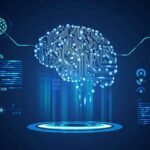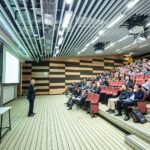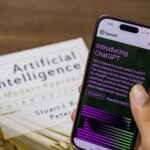Interview with Mr. Robin Li
Interviewer: Good morning, Mr. Li. Thank you for joining us today. It’s an honor to have the opportunity to speak with you. Let’s begin with a question about Baidu’s recent developments. Baidu has been at the forefront of artificial intelligence (AI) research and development. Could you share with us some of the latest advancements and how they are shaping the future?
Robin Li: Good morning, and thank you for having me. At Baidu, we are continually pushing the boundaries of AI research and development. One of our most significant recent advancements is in the field of autonomous driving. We have made substantial progress in developing autonomous vehicles and have launched Apollo, an open-source autonomous driving platform. This platform enables developers and partners to collaborate on advancing autonomous driving technology and bringing it to market faster.
Additionally, we have been focusing on natural language processing (NLP) and voice recognition technology. Our NLP models have achieved breakthroughs in Chinese language understanding, allowing us to develop applications such as smart speakers and language translation tools. We are also exploring AI applications in healthcare, with projects ranging from medical imaging analysis to drug discovery.
Overall, our goal is to leverage AI to improve people’s lives and create a better future. We believe AI has the potential to revolutionize numerous industries and make a positive impact on society.
Interviewer: That’s impressive, Mr. Li. Baidu has always been at the forefront of technological innovation. As you mentioned, autonomous driving is one of the areas Baidu has been actively pursuing. Can you share some insights into the challenges you have faced during the development of autonomous vehicles, and how you plan to overcome them?
Robin Li: Certainly. Developing autonomous vehicles is a complex task that involves solving numerous technological, regulatory, and safety challenges. One of the key challenges is ensuring the safety and reliability of autonomous driving systems. We invest heavily in rigorous testing and validation processes to ensure that our autonomous vehicles perform flawlessly in a wide range of scenarios.
Another challenge is mapping and localization. High-definition mapping is crucial for accurate and precise navigation. We are continuously expanding our high-definition mapping capabilities to cover more areas and improve localization accuracy.
Additionally, regulatory frameworks and public acceptance are important factors for the widespread adoption of autonomous driving. We work closely with regulatory bodies and industry partners to address these concerns and create a safe and conducive environment for autonomous vehicles.
Ultimately, we believe that collaboration is the key to overcoming these challenges. We actively collaborate with industry partners, research institutions, and government agencies to share knowledge and expertise. By working together, we can accelerate the development and deployment of autonomous driving technology.
Interviewer: Collaboration and addressing concerns are indeed crucial for the successful integration of autonomous vehicles. Shifting gears a bit, Baidu has also been investing in healthcare technology. Could you tell us more about Baidu’s endeavors in this field and the potential impact they may have on the healthcare industry?
Robin Li: Absolutely. Baidu recognizes the transformative potential of AI in the healthcare sector. We are committed to leveraging AI technologies to improve healthcare outcomes and make healthcare more accessible and efficient.
In medical imaging, we have developed deep learning algorithms that can assist doctors in diagnosing diseases such as lung cancer and retinal diseases with high accuracy. These algorithms can analyze medical images and provide doctors with valuable insights, leading to earlier detection and more effective treatments.
We are also actively engaged in drug discovery research. AI can significantly accelerate the process of drug discovery by analyzing vast amounts of biological data and predicting the efficacy of potential drugs. Through collaborations with pharmaceutical companies and research institutions, we aim to discover and develop new treatments for various diseases.
Furthermore, we are developing AI-powered healthcare platforms that provide personalized health recommendations and enable remote healthcare services. These platforms can help individuals monitor their health, receive timely medical advice, and improve overall wellness.
By combining the power of AI with healthcare, we envision a future where medical diagnosis is more accurate, treatments are more effective, and healthcare services are more accessible to everyone.
Interviewer: That’s truly remarkable, Mr. Li. Baidu’s efforts in healthcare are undoubtedly contributing to the advancement of medical technology. As we conclude our interview, could you share your vision for the future of Baidu and how you see the company evolving in the years to come?
Robin Li: Baidu’s vision has always been to be at the forefront of technological innovation and to make a positive impact on society. Looking ahead, we will continue to focus on AI and explore its applications across various industries. We believe AI will continue to reshape industries such as transportation, healthcare, education, and more.
Specifically, we will further strengthen our position in autonomous driving by expanding our autonomous vehicle fleet and enhancing the capabilities of our Apollo platform. We also see tremendous opportunities in the intelligent transportation sector, where we can leverage AI and big data to optimize traffic management, improve transportation efficiency, and reduce environmental impact.
In addition, we will continue to invest in cutting-edge AI research and collaborate with global partners to advance the frontiers of AI technology. By fostering an open and collaborative ecosystem, we aim to drive innovation and create value for our users, customers, and partners.
Ultimately, our goal is to build a better future powered by AI, where technology enables people to live happier, healthier, and more fulfilling lives. That’s the vision that drives us at Baidu, and we are excited about the possibilities that lie ahead.
Interviewer: Thank you, Mr. Li, for sharing your insights and vision with us today. It’s been a pleasure speaking with you and learning more about Baidu’s advancements in AI, autonomous driving, and healthcare. We wish you and Baidu continued success in shaping the future of technology.
Robin Li: Thank you. It has been my pleasure. I appreciate the opportunity to discuss our work at Baidu, and I look forward to seeing how AI continues to transform the world around us.


































